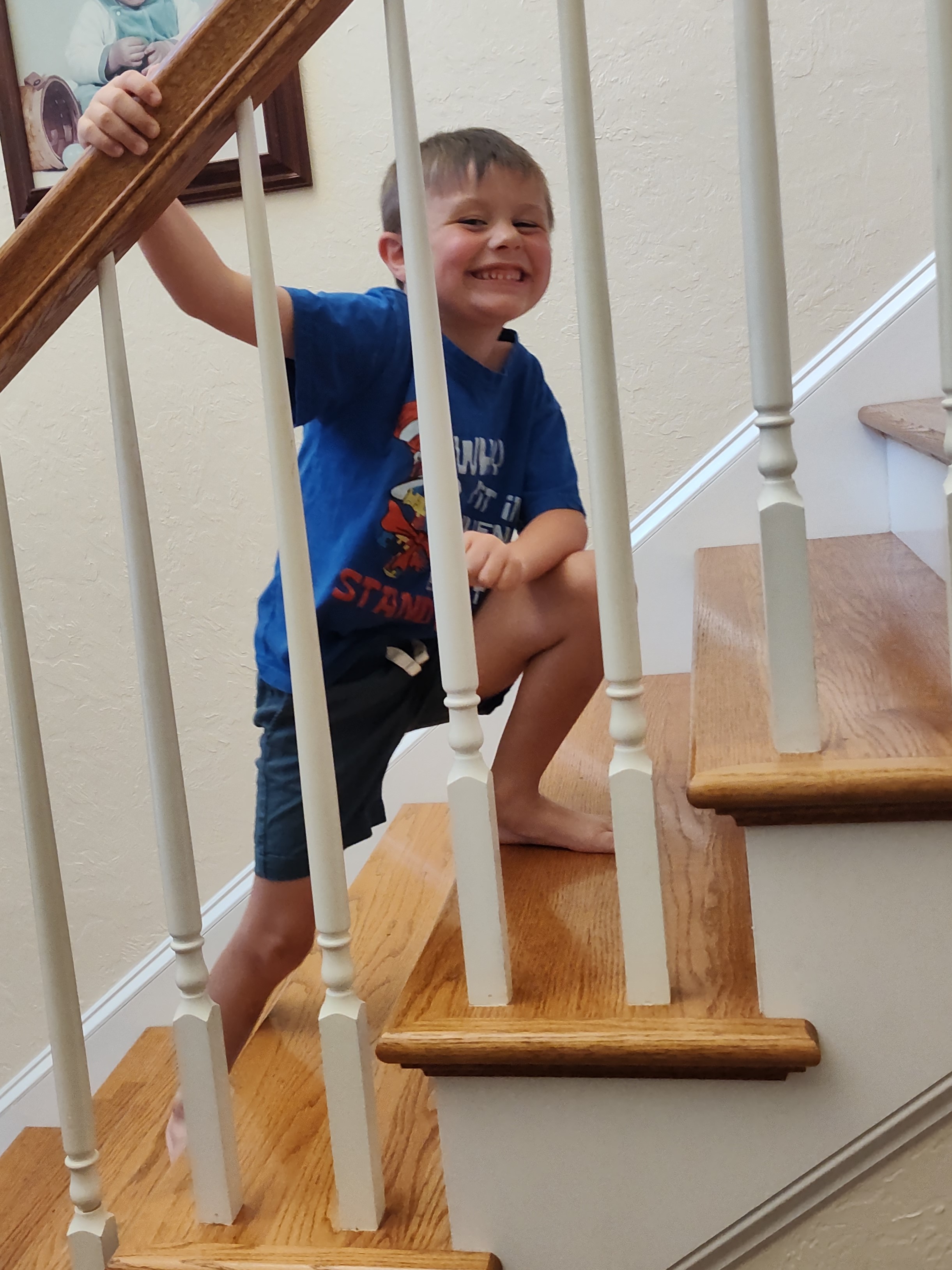Skipping Steps
 Five-year-old Noah likes to skip steps. When he climbs the stairs, he stretches his little legs to see how many steps he can skip. When he comes down, he likes to jump from the third step all the way to the bottom.
Five-year-old Noah likes to skip steps. When he climbs the stairs, he stretches his little legs to see how many steps he can skip. When he comes down, he likes to jump from the third step all the way to the bottom.
I like to skip steps, too. If I can find a faster way, I'll take it. If traffic is slow in town, I'll go the back way. If there is a line in the grocery store, I'll skip the cashier and use the self-checkout. Sometimes, skipping steps doesn't work out as I thought it would. The back roads may be more congested than the main highway. My self-checkout may require assistance, so it ends up taking longer. That doesn't stop me from trying to do things quicker.
There are some areas where skipping steps is a bad idea. My parents were married for over 60 years. They were incredibly close by the end of their marriage when my dad died. The strength of their marriage didn't just happen. It was the result of years of growth, work, and struggles. There were no skipped steps. Good marriages take time.
The same applies to our spiritual life. Jesus compared God's relationship with Israel to a marriage. We are God's beloved. He is the bridegroom and we are the bride. We can't skip steps in our relationship with God, but we often try.
When I first returned to the Church after 20 years of wandering, I wanted everything. Deep prayer – contemplation – mystical experiences – knowledge of the Bible – all the gifts of the Holy Spirit. And I wanted it immediately, effortlessly. Not surprisingly, that didn't happen. My spiritual wants were things that had to develop over time, with effort and patience on my part.
Consider St. Paul. He was struck down and blinded by Jesus, who opened his spiritual eyes to see the truth – that he was persecuting Jesus when he went after the Christians. God could have immediately opened his eyes, but he didn't. Paul was blind for three days. Then he spent years with the apostles learning before he began to teach others. There was no fast track.
Spiritual growth comes from spending time with God and in His Holy Word. The more I know God, the closer I get to Him, just as I have grown closer to my husband by spending 44 years with him. I have to put in the time.
We might try to fast-track our spiritual journey by looking for techniques that will create a mystical experience. The problem is, that experience may not be from God. When God wants to give us a mystical experience, it is a free gift, not something we create. Drugs can do that, too. I might feel closer to the Divine when I take a certain drug, but that is a false experience of God. I'm trying to skip steps, and it might seem like it's working but it's not God that I am accessing. That can be dangerous.
Another way we try to skip steps is in our healing journey. We don't want to dig into our deep wounds; we want to push down the bad feelings and ask God to take away the pain. God wants to heal our pain, but we have to revisit the pain for it to heal. He waits for us to have the courage and trust to revisit the past, the old wound, so He can heal it.
I want to fast-track my path to holiness by skipping the step where I find out my faults, my weaknesses, my failures. I don't want to face the truth about myself. That is painful and embarrassing. My pride is a big obstacle to self-knowledge. So I would like to skip the step where I find out how bad I am and just move forward to becoming a saint. But that won't work. I have to acknowledge my faults very specifically, see how they are revealed in my everyday behavior, and take steps to get rid of those faults. If I don't – if I try to skip steps – I will have a superficial relationship with God because I'm not willing to be vulnerable, even with God, who already knows my weaknesses. It's me who is blind to them, just like St. Paul.
I may want to skip the step of repentance in my faith journey. After all, God already knows all of my sins, and he died on the cross so they can be forgiven. Why do I have to actually say them? Why do I have to ask Him for forgiveness? I do it, not for God but for me. I'm the one who needs to know I am imperfect. I'm the one who needs to be reminded that without God I can do nothing. I can't skip that step.
Another step I may want to skip in my spiritual life is going to church – Can I just skip the worship step? Sure. I have free will. But God freed Israel from slavery in Egypt so they could worship. And He gave them very specific instructions about how to worship. If it's that important to God, why would I skip that step?
Reading the Bible – I could skip that step. After all, I'm very active in volunteering at church and in the community. Service matters more than Scripture, right? No! The Bible is where I learn about God – where I learn how to recognize His voice. If I skip that step and focus my time only on volunteering, I don't have a personal relationship with God. Even atheists volunteer. God calls me to more than service. He calls me to relationship.
Maybe I am a Bible Scholar and think I can skip the service step. The Bible takes all my time and attention. The Bible is a good thing – the Word of God. That's all I need, right? Wrong! We are told to care for our neighbors. If I live only to indulge my love for Scripture but never put it into practice, I have skipped an important step in the spiritual life.
It's very easy to justify skipping steps in our journey of faith. Don't do it. You will be shortchanging yourself. God has so much for each of us if we are patient, if we spend time getting to know Him, if we do the work to know ourselves and heal our hearts, and if we open our eyes to the needs of those around us. Our reward on earth is an abundant life. Our reward in Heaven is beyond our imagination. So take this journey one step at a time. Let God lead the way.
Questions for prayer:
-
Where have you tried to skip steps in your spiritual life? How has that hindered your progress?
-
What weakness or fault most often leads you to try to skip steps? How can you overcome that weakness?

